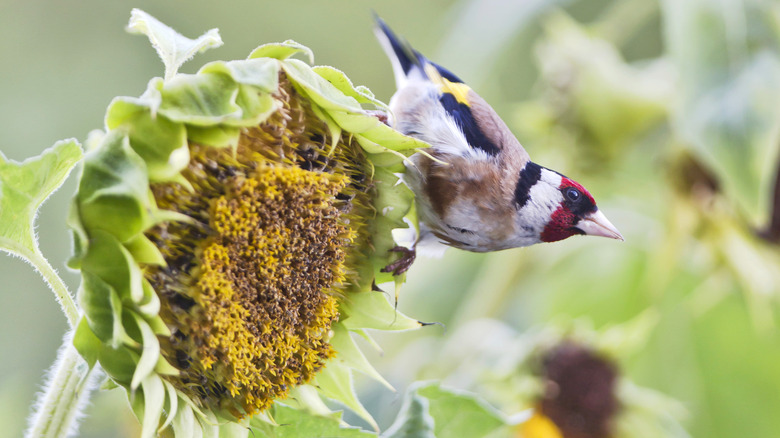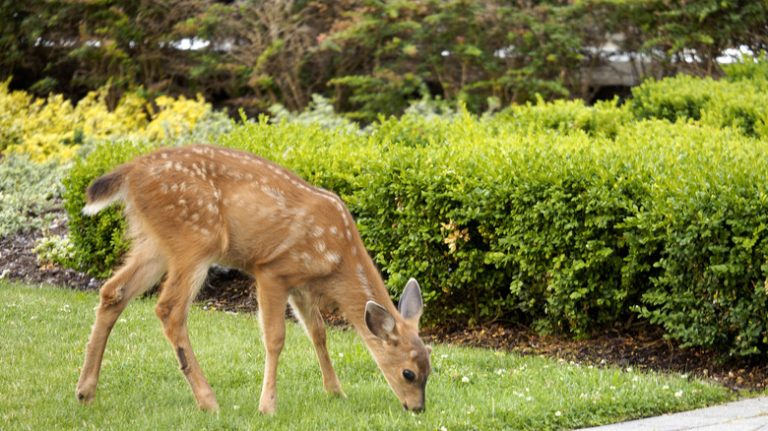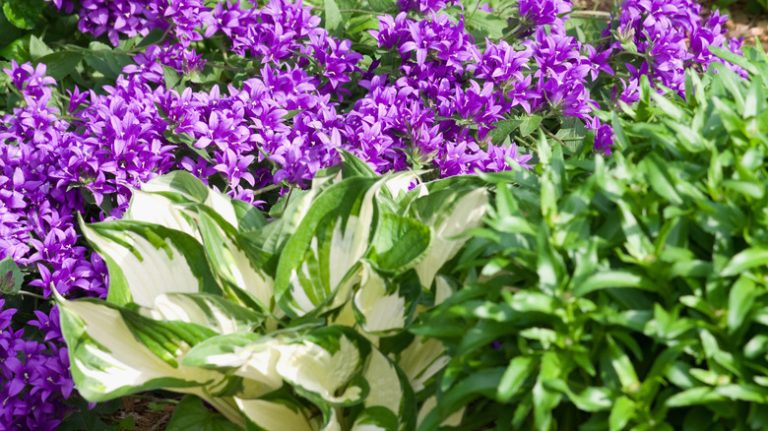Like you, birds have a sweet spot for sunflower (Helianthus annuus) seeds — and for good reason. These seeds fulfill their nutritional needs, successively replacing the energy expended on foraging, all while being easy on the stomach. The bird’s task becomes even simpler if your garden offers the black oil sunflower variety with its relatively thin, easily digestible shells. But if you don’t want birds to eat up all your sunflower seeds, one trick to deter them is to cover your flowers with netting, cheesecloth, garden fleece, or paper bags. While it may dim your garden’s charm slightly, it’s very effective in blocking your avian friends from accessing the seeds. Add a few visual bird-dispersing devices to your yard, such as decoy predators or reflective items, for a greater impact.
While birds munching on sunflowers may be enjoyable to watch, it’ll soon become an eyesore when they leave behind damaged flowerheads and empty hulls on the soil. And the situation can be even worse when newly planted seedlings are gobbled up before they can mature. In such cases, you can spread mulch or hay over newly sown seeds or cover them with row fabrics. Putting up chicken wire or a mesh around your growing flowers works, too. Just don’t forget to remove the protective layering once the plants grow tall.
Shield flowerheads from birds
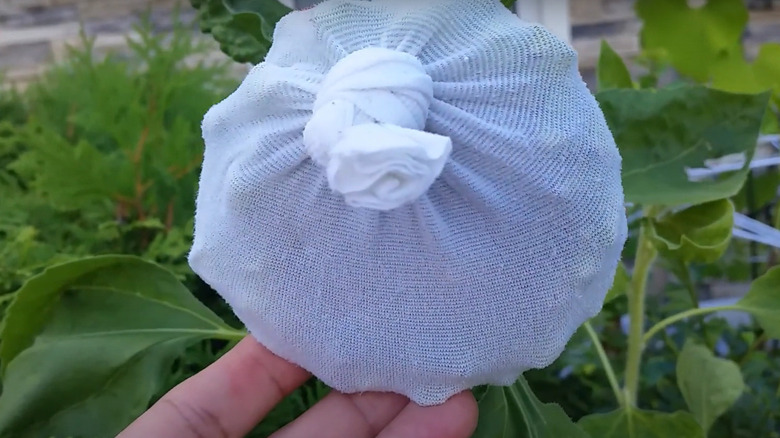
MariletSy Garden Travel Food & DIY/YouTube
Protecting the seeds early is the key to deterring birds from munching on your sunflowers. Instead of waiting for the underside of the flowers to brown and start to dry, start protecting your seeds around four to six weeks after the first blooms. The seeds will begin maturing about this time, attracting birds in their wake. Cut a garden fleece (or repurpose an old pantyhose) to cover the top 3 to 4 inches of the stalks and the flowerhead before securing it with a string. Two square feet of the fabric is likely sufficient for dwarf sunflower varieties.
These light fabric covers work great as they block the birds without inhibiting sunlight. Avoid plastic coverings, especially if you live in humid climates, as they may turn misty, causing rot or mildew. You can use paper bags, too—just punch a few holes along the sides and top to promote air circulation.
If you are looking for another deterrent option, the National Sunflower Association recommends a few bird-repellent sprays that can be used on sunflowers.
Complement with visual deterrents
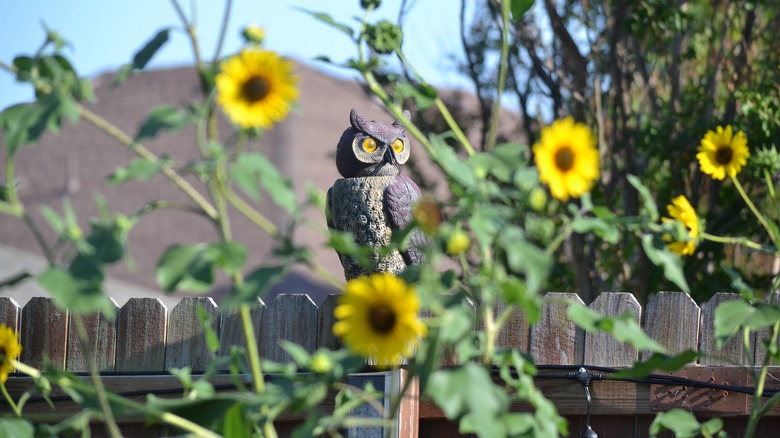
Besides just blocking the bird’s access to the seeds, there are reflective visual devices that are useful in keeping avian thieves off your sunflowers. These deterrents spook the birds through their arbitrary light flashes, posing a threat. Mylar ribbons and reflecting tapes work well in repelling blackbirds from sunflowers. Placing decoy predators in your flower garden is an option, too, as they invoke the birds’ sense of self-preservation, throwing them off-track. But they work better if fitted with motion features, such as owls with rotating heads. These decoys are best used as short-term measures and must be relocated now and then to retain their effect.
It might sound counterintuitive, but setting up birdfeeders can distract the feathered fiends from your sunflowers — provided they’re located far from the shrubs you’re trying to protect. Border edges or property perimeters are the best spots. Just make sure they carry the food your unwanted visitors like the most. Planting lure crops follows the same principle. Offer your feathered friends alternate crops (like corn) that they find palatable. Just make sure they ripen early and aren’t chemically treated.

